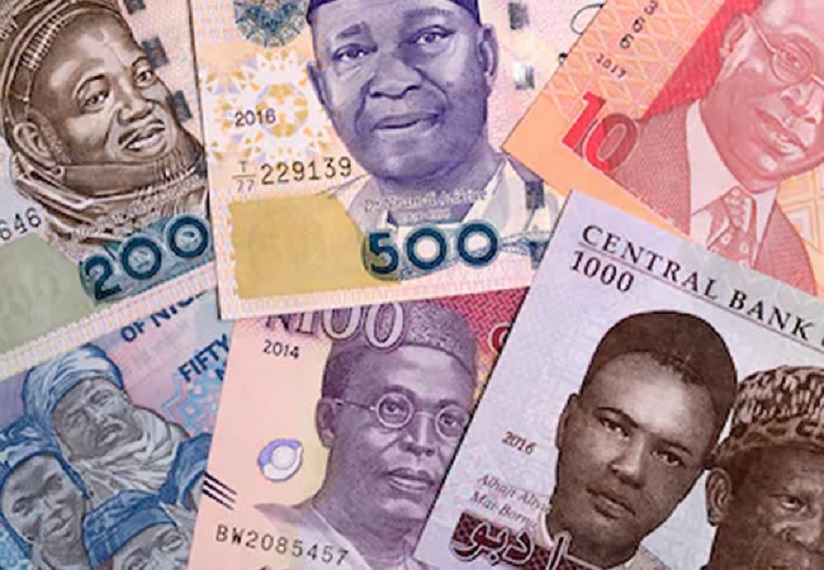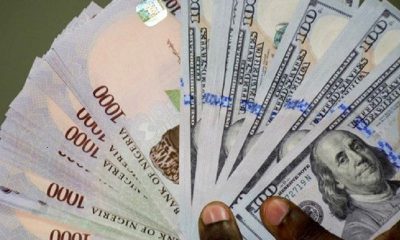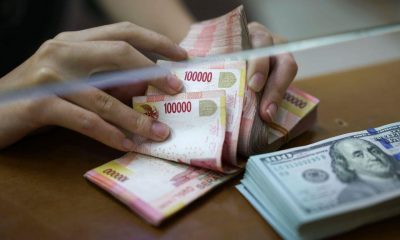Economy
Redesign Gone Wrong? – Costly Cashless

How does the central bank retrieve 84.5% of a country’s currency in circulation in just 90 days? This was one of the many questions seemingly begging for answers when Nigeria’s apex bank announced its plan to redesign the three higher value notes of the naira (N200, N500 and N1,000) on October 26, 2022.
Fast-forward three months and three weeks (a week before the general elections), and a majority of Nigerians are now confronted with a shortage of naira notes that is proving disruptive to lives and livelihoods.
Given the analyst consensus that a 90-day window was simply insufficient to complete the project, it is difficult to conceive a scenario where the Central Bank of Nigeria (CBN) did not anticipate the challenges which have accompanied this transition period.
President Muhammadu Buhari, in his address to Nigerians on February 16, 2023, said… “I am not unaware of the obstacles placed on the path of innocent Nigerians by unscrupulous officials in the banking industry, entrusted with the process of implementation of the new monetary policy. I am deeply pained and sincerely sympathise with you all over these unintended outcomes.”
In what appears to be a clear case of buck-passing by the federal government, the blame is being laid squarely on the banking industry’s purported failings and not any lapses in the policy’s design or hasty execution.
Depending on whom you ask, a performance appraisal of the CBN’s execution of the redesign project would range from grossly unprepared to poorly perceived.
In our opinion, the CBN failed to do enough through the media (television, radio, newspapers, new media) to effectively sensitise the public, particularly the rural dwellers, and manage expectations.
Most Nigerians assumed a simple exchange of old Naira notes for new ones. However, if we are to believe claims by the Kaduna State Governor, Nasir El-Rufai, the CBN printed circa N400 billion in new notes, leaving a shortfall of N2.3 trillion.
So, while the exercise has reportedly reeled in 80% (N2.1 trillion) of the N2.7 trillion held outside the banking system thus far, the average Nigerian is once again confronted with a test of resilience. Cash has become commoditized, hoarded by many, and now commanding outrageous premiums of up to 20-30% at Point-of-Sale (PoS) outlets.
The Road to Perdition is Famously paved with Good
Public outrage has degenerated into violent protests in some cities, with incidents of vandalism and arson at several banks’ facilities – and PoS outlets. The cash crunch and the uncertainty surrounding the policy are fanning a long-simmering fire of public resentment, triggered by deteriorating economic conditions and recently exacerbated by unending petrol shortages.
The result has been a significant loss of manhours, logistics constraints to many businesses and possible threats to the successful execution of the general elections.
The CBN, when launching the redesign project, outlined the objectives clearly. Perhaps its most compelling arguments centred on the need to combat terrorism and reduce counterfeiting.
The others largely revolved around driving the cashless policy through a shift away from cash and toward increased adoption of digital banking channels for transactions. This was underscored by a need to deepen financial inclusion (currently at 64%) and drive an efficient payment system that would improve the efficacy of monetary policy tools in combating inflation.
While the design of the policy gave room for underhand dealings by a privileged few, where the banking industry has really fallen short is in the capacity of the current digital payment infrastructure, which was already plagued by ‘transaction failures’ and an apparent inability to implement instant refunds, to handle the surge in transaction volumes.
For context, in the five years leading up to 2021, electronic payment surged by 386% to N272 trillion, accounting for over 94% of the entire value of transactions in Nigeria’s banking system. Financial institutions also responded accordingly by upscaling digital infrastructure to support the increasing adoption of electronic banking.
Recently, the Nigeria Inter-Bank Settlement System (NIBSS) reported a spike in the value of total cashless transactions in Nigeria to N39.58 trillion in January 2023 – a year-on-year increase of 45.41% – largely on the back of the CBN’s redesign and cash withdrawal policy.
Nevertheless, on evidence, the abrupt shift to electronic payments, which the current cash shortage has necessitated, has overwhelmed the banking industry’s digital payments infrastructure.
Nigerians are currently grappling with an unprecedented rate of electronic transaction failures. To further complicate matters, many transactions have not only failed, but refunds are taking days, even weeks in some instances, leaving many stranded and constraining commercial activity.
Unintended Consequences
The hardest hit by the policy have been the most vulnerable members of the population (the poor, the unbanked and the rural dwellers).
Nigeria is still a largely cash-dependent economy, with informal economic activity accounting for approximately 65% of GDP and being dominated by Micro, Small and Medium Enterprises (MSMEs). These MSMEs account for up to 96% of businesses and 86.3% of the national workforce. These are mostly cash-based businesses – particularly the micro-enterprises, which account for 99.8% of Nigeria’s 37.1 million MSMEs.
Given the low levels of education and exposure of a significant number of Nigerians in this category, many of whom live in rural areas with inadequate or non-existent telecommunications infrastructure, a quick and seamless transition to digital payment channels was always unlikely.
In addition, while mobile phone ownership in Nigeria is estimated at 81% by Enhancing Financial Innovation & Access (EFinA), internet penetration is still a mere 44.3%, as 60% of Nigerians live in rural areas where network outages were widespread even before the latest wave of transaction failures, and coverage was often non-existent, limiting access to traditional banking services. The Unstructured Supplementary Service Data (USSD), launched by banks and TelCos to enable deeper mobile banking penetration in communities lacking mobile data, has also been plagued by network-related setbacks.
The disruption to transactions, trade (domestic & foreign), productivity and all-round economic activity is likely to be significant enough to trigger a contraction in GDP in Q1’23 and possibly a loss of livelihoods for many.
Many cash-dependent businesses are being pushed to the brink. For example, cocoa farmers are currently unable to pay their labourers and transporters, jeopardising production and exports. The cash constraint is also likely to compel consumers to prioritise spending on necessities, leaving many businesses, particularly MSMEs, with decreased sales and heightened credit risks.
Worse still, living standards could decline further, particularly for many rural dwellers, as an inability to access cash could limit access to critical services like healthcare, stoking public discontent even further.
On the flip side, some of the biggest beneficiaries of the current lapses in electronic transactions have been Fintechs like Opay, Moniepoint, Paga, and Kuda, amongst others, which are reportedly far less prone to glitches and charge significantly lower transfer fees.
Whether this is down to lower transaction volumes than traditional banks or the capacity of their digital infrastructure, or both, it remains unclear.
However, getting traditional banks to invest in expanding their digital infrastructure in a period of rapid currency depreciation (most of the required infrastructure is imported) and, just as crucially, enhancing their cybersecurity will be crucial in convincing Nigerians to go cashless.
Some of the tier 1 banks spent an average of 5.4% of their operating expenses on ‘IT and related expenses” in 2021. Raising this expense in the face of shrinking margins would become increasingly difficult, as it is likely to further impinge on profitability.
Final Thoughts
Many contend that the solution to the immediate problem is rather straightforward: print more of the redesigned naira notes while gradually phasing out the old ones.
There is, however, a contrarian view suggesting that agreeing to the aforementioned is not to have a full appreciation of the nuances at play.
Perhaps the most significant takeaway from President Buhari’s recent address is clarity over who makes decisions and who must approve any deviation from the current position on which naira banknotes are legal tender.
The President concludes his address by noting that the policy’s success in minimising the influence of money in politics was a “positive departure from the past”. Given the timing of the policy, many argue that curbing vote-buying was the overarching objective.
The question is whether the long-term benefits of redesigning the naira outweigh the short-term costs and inconvenience of Nigerians being practically compelled to do away with cash. The hope is that the average Nigerian, now confronted with even greater hardship amid the current cost of living crises, is not a mere pawn in a political chess game.
Economy
SEC Revokes Operating Licence of Kensington Agro Trading Ltd

By Aduragbemi Omiyale
The operating licence of a capital market operator, Kensington Agro Trading Limited, has been revoked by the Securities and Exchange Commission (SEC).
The capital market regulator, in a circular dated February 09, 2026, disclosed that the action “pursuant to the powers of the commission under Section 61(6) of the Investments and Securities Act, 2025, and Rule 34(1) of the SEC Rules and Regulations 2013, as amended.”
The disclosure noted that the revocation of the licence of the company was “with immediate effect.”
The reason for withdrawing the operating licence of Kensington Agro Trading Limited was not stated in the notice.
“The Securities and Exchange Commission hereby notifies the general public of the revocation of the registration of Kensington Agro Trading Limited as a capital market operator (Commodity Broker/Dealer and Collateral Manager) with immediate effect.
“The revocation of the company’s registration is invoked pursuant to the powers of the Commission under Section 61(6) of the Investments and Securities Act, 2025, and Rule 34(1) of the SEC Rules and Regulations 2013, as amended.
“Accordingly, Commodity Exchanges, the investing public, commodity traders, and all Capital Market Stakeholders are advised to discontinue capital market-related dealings with the company,” the circular signed by the management noted.
Economy
CBN Data Shows 25% Drop in Nigeria’s Oil Earnings to N877bn in December

By Adedapo Adesanya
The latest off-cycle data released by the Central Bank of Nigeria (CBN) has revealed that Nigeria’s revenue from the oil and gas industry dipped by 25.04 per cent to N877.176 billion in December 2025, compared with N1.17 trillion received from energy firms in November 2025
In its presentation to the Federation Account Allocation Committee (FAAC) on receipts and expenditures for December 2025, the CBN disclosed that the amount earned from the oil and gas industry in the month under review represented 95.65 per cent of the sector’s budgeted revenue of N917.064 billion for the month.
In comparison, revenue from the petroleum industry in November 2025 accounted for 96.38 per cent of the N1.474 trillion budgeted for the sector in November 2025.
Providing a breakdown of revenue from the industry in December 2025, the CBN stated that the country earned N772.727 million from crude oil sales, dropping by 97.92 per cent from N37.134 billion recorded in November 2025; while the it recorded revenue of N9.019 billion from gas sales, rising by 24.14 per cent from N7.265 billion recorded in November.
Furthermore, the financial sector apex regulator noted that revenue from crude oil royalties dipped by 12.52 per cent to N514.288 billion in the month under review, from N587.865 billion recorded in the previous month; while receipts from miscellaneous oil revenue grew by 97.5 per cent to N2.678 billion in December 2025, from N1.356 billion in the previous month.
It also stated that royalties from gas appreciated by 124.91 per cent to N21.153 billion in December, from N9.405 billion in November 2025; revenue from gas flared penalties stood at N48.858 billion, down by 5.76 per cent from N51.842 billion in November, while revenue from Companies’ Income Tax (CIT) from upstream oil industry operations stood at N73.066 billion, as against N106.106 billion in the previous month.
The CBN further revealed that revenue from Petroleum Profit Tax (PPT) stood at N79.247 billion; rentals – N1.5 billion; while taxes stood at N126.594 billion, compared with N301.471 billion. N775.162 million, and N67.242 billion, respectively, in November 2025.
In addition, the CBN reported that from the country’s oil and gas revenue in December 2025, N18.163 billion was deducted for 13 per cent refund on subsidy, priority projects and Police Trust Fund from 1999 to 2021; while N8.761 billion was deducted by the Nigerian National Petroleum Corporation Limited (NNPCL), in respect of its 13 per cent management fee and frontier exploration fund.
It added that N23.724 billion was deducted and collected by the Nigerian Upstream Petroleum Regulatory Commission (NUPRC) in December 2025, being four per cent of the cost of collection; while N46.903 billion was transferred to the Midstream and Downstream Gas Infrastructure Fund from gas flared penalties in the same month.
Economy
Nigeria Begins Implementation of Executive Order 9 on Oil Earnings

By Aduragbemi Omiyale
On Saturday, February 28, 2026, the Implementation Committee for Executive Order 9 held its inaugural meeting, headed by the Minister of Finance and Coordinating Minister of the Economy, Mr Wale Edun.
The panel, at the gathering, reaffirmed the directive of President Bola Tinubu that revenues accruing to the federation from petroleum operations must be handled in a manner that upholds constitutional principles, protects revenues accruable to the nation, and supports the fiscal stability of all three tiers of government.
It approved the establishment of a technical subcommittee to develop the detailed guidelines for the transition to direct remittance within three weeks, and commence a review of the Petroleum Industry Act (PIA) to address structural and fiscal anomalies that weaken Federation revenues.
It was agreed that the subcommittee would be led by the Special Adviser to the President on Energy, and will include the Solicitor-General of the Federation and Permanent Secretary Federal Ministry of Justice, the Chairman of the Nigeria Revenue Service, and the Chairman of the Forum of Commissioners of Finance, representatives of the Minister of State Petroleum Resources, Oil, with secretarial support from the Budget Office of the Federation.
The committee promised to provide coordinated guidance and timely updates as implementation progresses. It commended the cooperation of all stakeholders in advancing the President’s efforts to ensure that Nigeria’s petroleum resources deliver tangible, measurable benefits to citizens across the Federation.
Under the new order, Mr Tinubu directed that NNPC Limited shall cease, with immediate effect, the collection of the 30 per cent management fee and the 30 per cent frontier exploration fund deductions from profit oil and profit gas under Production Sharing Contracts (PSCs).
Additionally, all remittances of gas flare penalties into the Midstream and Downstream Gas Infrastructure Fund (MDGIF) are suspended with immediate effect, in line with the Executive Order.
With respect to Section 2, Sub-section 3 of the Executive Order on direct payments by contractors into the Federation Account, the panel agreed that this transition must be implemented in a manner that respects existing contractual and financing arrangements, and maintains investor confidence.
For this reason, the committee approved a defined transition period for the operationalisation of direct payments by contractors of profit oil, royalty oil, and tax oil into the Federation Account.
Until the Committee issues detailed guidelines, contractors will continue to remit under the current process. During the transition period, the Committee will issue clear, standardised guidance to ensure an orderly changeover.
-

 Feature/OPED6 years ago
Feature/OPED6 years agoDavos was Different this year
-
Travel/Tourism10 years ago
Lagos Seals Western Lodge Hotel In Ikorodu
-

 Showbiz3 years ago
Showbiz3 years agoEstranged Lover Releases Videos of Empress Njamah Bathing
-

 Banking8 years ago
Banking8 years agoSort Codes of GTBank Branches in Nigeria
-

 Economy3 years ago
Economy3 years agoSubsidy Removal: CNG at N130 Per Litre Cheaper Than Petrol—IPMAN
-

 Banking3 years ago
Banking3 years agoSort Codes of UBA Branches in Nigeria
-

 Banking3 years ago
Banking3 years agoFirst Bank Announces Planned Downtime
-

 Sports3 years ago
Sports3 years agoHighest Paid Nigerian Footballer – How Much Do Nigerian Footballers Earn



















